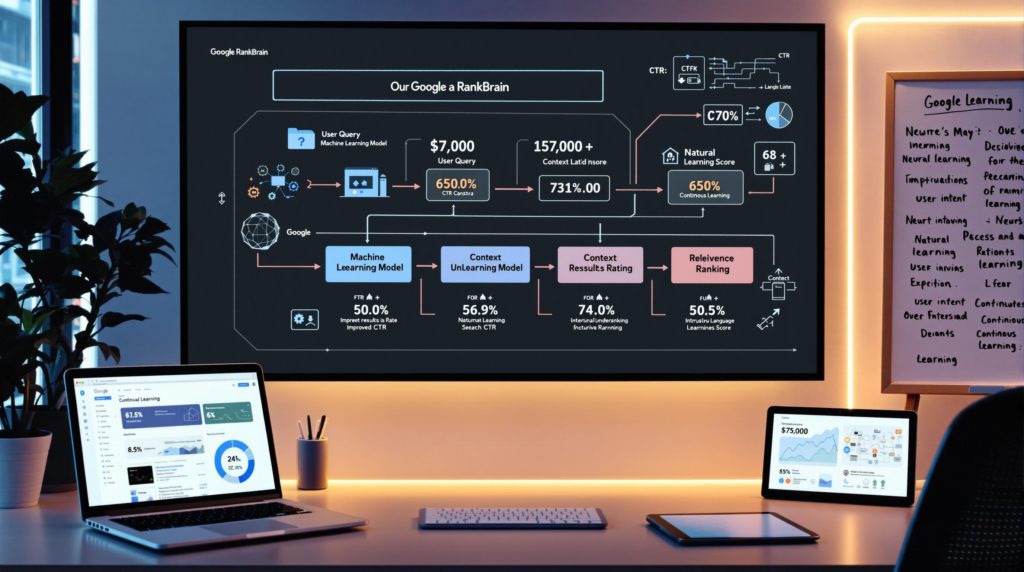RankBrain is the name that Google gave to its artificial intelligence system that it uses to assist with processing search results to help give users the most relevant results on the Search Engine Results Page (SERP). How does it work, and what do you need to know about it?
Google processes over 40,000 searches per second. This adds up to 3.5 billion per day and 1.2 trillion per year. To process all of these queries and give the most relevant results to users, Google uses what they call their Hummingbird algorithm. RankBrain is the machine-learning part of the Hummingbird algorithm, and it is just one of the “hundreds” of major signals that Google uses (and perhaps 10,000 sub-signals) to give you your search results.
Because of a recent Q&A with Google, we can confirm that RankBrain is the third most important signal that Google uses when ranking pages on the SERP. Number one and two are links and content, which is no surprise. It wasn’t however identified whether links or content are more important, but they’re both so critical that we wouldn’t recommend prioritizing one over the other. Plus, successful content creation will result in links as people share your content.
But why AI? In 2013 Google said the number of never-before processed queries as 15%. While this is down from the 20-25% it had in 2007, it’s still a massive number considering their volume. Previously, Google was able to find results that were not exactly what was searched using synonyms and stemming lists. While much of it could be automated, it still came down to real humans maintaining and updating these lists.
RankBrain is designed to help with more complex search terms, so-called “long-tail” queries that can have many words. The purpose is to analyze these complex searches and return relevant results. Google is able to find patterns between what appear to be unrelated searches to identify how they are actually related to each other and popular topics. It then uses these connections to produce results that are most useful to users. While Google won’t provide details on how RankBrain works, for end users it means that complex and granular searches can turn up pages that you are looking for.
Should RankBrain have any effect on your SEO strategy? Probably not. As was mentioned earlier, the two most critical signals are links and content. We continue to promote the regular creation and promotion of engaging content as the most important factor to your SEO success. Google said in 2015 that RankBrain processes most of the then 15% of queries it had never seen before, but in 2016 Google expanded the use of RankBrain and has stated that it now uses RankBrain to influence results for most if not all searches.
Why shouldn’t you be putting a big focus on RankBrain optimization? Simply put, we don’t know how it works. As with all Google algorithm details, they’re fuzzy about how and why things work the way they do. RankBrain is an advanced, artificial intelligence machine-learning algorithm, and we can’t imagine that technical SEO-tweaking will make much of an impact. It’s probably why Google is rapidly expanding its use in searches.
RankBrain is out there, and it’s growing with relevance every year. However, success in SEO isn’t going to be dependent on how you tweak your pages to fit rumors of how it works. Build great content and share it with the world. Google’s search algorithms will reward you.

